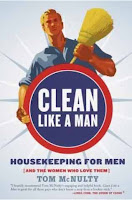 GUEST BLOGGER: Elline Lipkin PhD was recently a Postdoctoral Scholar at the Beatrice M. Bain Center for Research on Gender at UC Berkeley. Her first book, The Errant Thread, was published by Kore Press. She recently moved to Los Angeles and is in search of feminist community. I met Elline this summer at an NWSA conference and then again at Cody’s Bookstore in Berkeley, where we discovered we had a dear dear connection in common. If you are in LA and are connected to feministy activity at large, you should contact her because she is AMAZING! Here’s Elline! -GWP
GUEST BLOGGER: Elline Lipkin PhD was recently a Postdoctoral Scholar at the Beatrice M. Bain Center for Research on Gender at UC Berkeley. Her first book, The Errant Thread, was published by Kore Press. She recently moved to Los Angeles and is in search of feminist community. I met Elline this summer at an NWSA conference and then again at Cody’s Bookstore in Berkeley, where we discovered we had a dear dear connection in common. If you are in LA and are connected to feministy activity at large, you should contact her because she is AMAZING! Here’s Elline! -GWP
Gottlieb and the Single Girl
For the past few days it’s been impossible to ignore the vitriol electrifying the e-waves over Lori Gottlieb’s article in the March issue of The Atlantic Monthly. Entitled “Marry Him! The Case for Settling for Mr. Good Enough†Gottlieb argues that a woman shouldn’t hold out for marriage based on a Big Romantic Connection, but instead should settle for Mr. Not So Bad, primarily so that she has a partner in the trenches, as she puts it, of homemaking and child-rearing. Instead of thinking of a partner as a soul mate or someone with whom to embark on a passionate adventure, she suggests, imagine him as a partner in a “small, mundane, and often boring nonprofit,†which is another way she characterizes running a household together. She gives more insight about her position in an Atlantic interview, this recent NPR piece, and on The Today Show.
Her evidence is anecdotal, her stress level as a new single mother sounds high, and her impatience with her friends’ complaints about husbands who don’t pull equal weight with parenting is worn out. There is much to take issue with in her argument, (as others who have done real research into these issues have), based as it is on her seemingly middle-class and often privileged friends. In my view, one of her serious missteps (and where she incurred the most wrath) is her first assumption that all women want to get married, as she writes, “To the outside world, of course, we call ourselves feminists and insist… that we’re independent and self-sufficient… but in reality, we aren’t fish who can do without a bicycle, we’re women who want a traditional family.†The piece continues on in its belief that a woman is always better off with the financial and physical help of a husband (never mind walking sperm bank on tap!), no matter how bland, boring, or eventually bald she might find him. Gottlieb even says that since one of her married friends’ chief complaints is that they never see their spouses, likeability shouldn’t really even be an issue. In today’s issue of the LA Times, columnist Meghan Daum takes Gottlieb roundly to task over her assumption that all women want children.
Yet, (and this is the tricky part), I think Gottlieb has a point. What troubles me is how her poorly chosen rhetoric is allowing her argument to be twisted into anti-feminist backlash and sounds suspiciously close to a regressive longing for the all-holy strictures of the nuclear family. As a woman of the same age, I see Gottlieb’s argument borne out of a pragmatism which doesn’t disavow romance as much as it asks women to drop the Hollywood-ending scales from their eyes. As a self-proclaimed quirkyalone whose motto was always “Never settle!†as well as a recent newlywed I think the Atlantic deliberately framed her message as one that only inflames the stereotype of single-woman-as-desperate and then lights it on fire.
Retitled something far more pragmatic such as “Your Priorities Will Change as You Get Older†her article wouldn’t have incited the blogosphere, yet could have carried across what I see as her essential message. Don’t count out that shy five-foot-six guy with a heart of gold hanging out in the corner at a party when you always said you would only date men who are at least five ten seems to be one way to sum up her core advice. Think about the qualities that make for a great life partner on all fronts, including the unromantic day to day, and don’t confuse superficial romance novel notions about passion with character and qualities that will last for the long run. She references the “motherly advice†we’ve all heard and disdained now coming back to haunt her — think about “the bigger picture†a potential spouse represents rather than his short-term libidinous appeal. Gottlieb admits that it’s a fine line between “settling†and “compromising†and that every woman has to determine where this wavers, and surprisingly, at the article’s end confesses that she will probably never will settle, although she wishes she had. In all of this, I think she is absolutely right.
Last year I wrote in Salon about my own travails in the dating world, and I know how hard it is to meet someone with whom you can simply carry on a decent conversation for an hour, never mind a lifetime. I had spent far too long in a long-distance relationship that went nowhere (except gathering frequent flier miles) and I had sworn I’d never do that again. At age 38, when I first met my now-spouse, who lived a short plane ride away, I remember saying, “I’m too old and too picky to count out someone who seems this good.†If I had been ten years younger, or for that matter even five, would I have made the effort? Probably not. I see Gottlieb as coming from a place the dating-weary often reach: a far shore of loneliness when you think meeting someone of substance is just never going to happen. That her values have changed as she entered her fourth decade, altered with the birth of her son, and sobered up to the reality that the dating pool shrinks substantially the farther one goes into one’s thirties, doesn’t seem so wrong.
Yet a moment I think Gottlieb misses the mark is when she assumes men don’t suffer from the choices they’ve made, only women do. As I wrote in Salon, I was amazed at how many men regretted not marrying younger and awoke to wanting children later in life, only to realize it probably wasn’t going to happen for them. For many men it wasn’t biology that would limit them, but a ticking social clock that counted them out past a certain age as well. What seems sad is that Gottlieb can only celebrate for a scant moment the choices she had the privilege to make, namely to have a child on her own, despite its hardships. Her hindsight (and lack of sleep it sounds like) is what drives her rear view mirror exhortation to younger women to avoid her path and take on a partner, not just any old partner, but one seen through the tempered vision maturity brings.
You can contact Elline at elline.lipkin@yahoo.com







